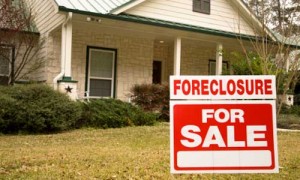By Norman C. Madsen
As soon as the owners of real estate notes liquidate their assets the ensuing sales will typically require some kind of discount. Here is an easy breakdown of the Investment to Value (ITV) approach many Note Buyers use to find out their pricing.
Most seasoned Note Buyers have established guidelines in mind that actually narrow their interest to the notes that are likely to fit their buying requirements. Still, many buyers will purchase any kind of note if the price is right - in other words, if the financial rewards are in line with the connected risk. To compensate for added vulnerability purchasers adjust their pricing guidelines downward, which results in a greater yield.
Many buyers evaluate their danger in a transaction by contemplating their Investment to Value (ITV) percentage. ITV measures the sum of protective equity the Note Buyer has by comparing her purchase price to the property value. The amount of protective equity in the property is determined by subtracting the ITV from 100. The lower the number or percentage the safer it is for the Note Buyer.
When a Note Buyer thinks that obtaining a note may be high risk, one possible option is to make a lower offer that reduces the ITV. A lowered ITV results in more protective equity for the Note Buyer.
An ITV-based buying example
Think about a house appraised at $100,000 that secures a $95,000 note. If the Payor in this situation had poor credit or a history of missing monthly payments this might be considered a risky situation. Since there is only $5,000 in equity any Note Buyer would want a mitigating factor to offset the risk associated with this purchase.
A good way to improve this deal from the buyer's perspective is to make a discounted offer. If a buyer offers only $60,000, the ITV would be 60 percent, giving the buyer a 40 % of protective equity. That $40,000 of protective equity could help her to create a profit, even in a foreclosure scenario. If the buyer incurs extra expenses when foreclosing and reselling the house, the $40,000 of protective equity should more than cover the extra expenses.
Note Purchasers always have to look after their interests. Consequently, notes with little equity and a poor payment history are most likely to see greater discounts in order to achieve enough protective equity for the buyer. This protective equity will help make sure that Note Buyers can recoup their funds if Payor default leads to foreclosure.
Also, depending on how much the Payor also has dedicated to the deal. For example, if the price of the house is $100,000, and the person only puts down $1,000, then the investor won't feel that the payor has that much invested in the house and property and the possibility of default is greater as opposed to the payor having invested a greater amount.
We call that "Teeth in the Deal". How devoted is the payor in the property.
John Manzanet is a formidable expert in the Real Estate Note and Structured Settlement Note Business. For more information on How to Create your Real Estate Note, visit John Manzanet’s Web site.. Also published at Knowing The Philosophy Regarding Note And Structured Settlement Discounts.

 Naples, FL Realtor,Don Breen recently was asked a question about mortgage insurance and shares his answer here.
Naples, FL Realtor,Don Breen recently was asked a question about mortgage insurance and shares his answer here.